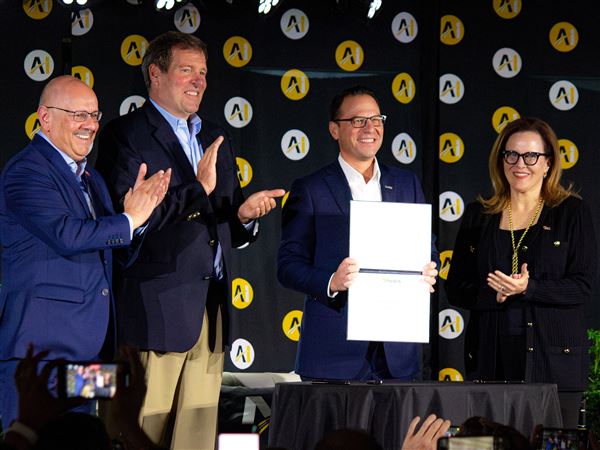SAN JOSE, Calif. -- Tony Bates has had an eventful seven months as Skype's new CEO.
The company has consolidated its local offices to Palo Alto, Calif., announced plans to hire hundreds of new workers, added a video calling feature to its iPhone and Android applications and also acquired a competitor, all while preparing for a planned public offering.
To cap it off, the Internet calling company announced earlier this month that instead of going public, it had agreed to be acquired by Microsoft Corp. for a whopping $8.6 billion in cash.
As part of the merger, which still has to be approved by regulators, Mr. Bates, 44, a former Cisco Systems executive, will become president of Microsoft's new Skype division and report directly to CEO Steve Ballmer. Mr. Bates will be charged with growing Skype's business and will help oversee efforts to connect Skype with Microsoft's other products.
That could prove a big challenge. EBay, which previously owned Skype, famously failed in its efforts to integrate the company into its auction business. Meanwhile, few Skype users actually pay to use its services -- and many may resist doing so.
In an interview, Mr. Bates talked about why the Microsoft deal makes sense, why things will work better with this acquisition and how the company plans to diversify its revenue. The interview was edited for length and clarity.
QUESTION: Prior to getting this unsolicited bid from Microsoft, Skype was planning on going public. Why did Skype agree to the deal instead?
ANSWER: The thing that made it exciting for Skype was a shared view of the way we see communications evolving.
If you think about Skype's value proposition, it's been around making it easy and seamless to communicate, both with audio and then video from the desktop to, more recently, mobile. Also to the living room.
And if you look at the Microsoft strategy, there's a lot of similarities. Not just to be a calling capability, but much more than that.
When they made the commitment to allow us to continue to support multiple devices, Microsoft and non-Microsoft, it felt right, and the board was behind it, and we went for it.
Q: Given that Microsoft is paying 10 times more than Skype's annual revenue, wasn't this basically a "Godfather" deal, one that you couldn't refuse?
A: Everything's a balance in life. It was a great offer. But from my perspective, that was secondary to the broader mission, which is becoming a global communications services provider that can hit a billion people. This just helped us accelerate that.
Q: Why will this deal work better than when eBay acquired Skype?
A: It's hard for me to comment why the eBay deal didn't work, because I wasn't part of the company.
When I think about why it will be a success: One is we really think about things in the same way.
We also come from a heritage of starting on the Windows platform, so there's a technology alignment.
The second piece of it is the approach that we are a division reporting directly to the CEO. That was never done before. It's not just about the organization; it's sort of a statement of strategic intent and strategic alignment.
And then, just for me, they're focused in many ways on bringing tools and software capabilities to businesses and consumers, as we are.
And so I just feel that, from that perspective, there's just a very strong alignment.
I'm sure there was a lot of focus last time. This one feels like it's very focused on being part of the company with a set of strategic parameters that play to the strengths of Skype.
First Published: May 29, 2011, 8:00 a.m.















